Related Research Articles

Dorothea Jordan was an Anglo-Irish actress, as well as a courtesan. She was the long-time mistress of Prince William, Duke of Clarence, and the mother of 10 illegitimate children by him, all of whom took the surname FitzClarence. She was known professionally as Dorothea Francis and Dorothea Jordan, was informally Dora Jordan, and she commonly was referred to as Mrs Jordan and Mrs FitzClarence.

Spranger Barry was an Irish actor.
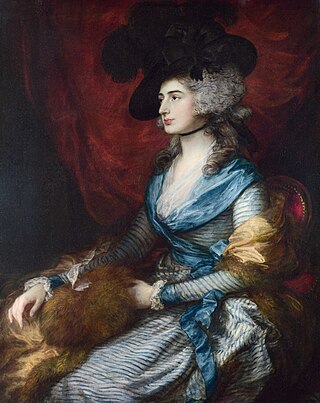
Sarah Siddons was a Welsh actress, the best-known tragedienne of the 18th century. Contemporaneous critic William Hazlitt dubbed Siddons as "tragedy personified".

Margaret Woffington, was an Irish actress and socialite of the Georgian era.

James Quin was an English actor of Irish descent.
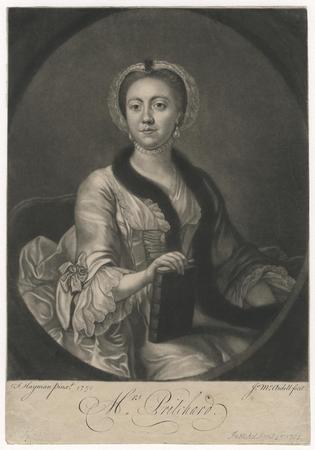
Hannah Pritchard was an English actress who regularly played opposite David Garrick. She performed many significant Shakespearean roles and created on stage many important female roles by contemporary playwrights.
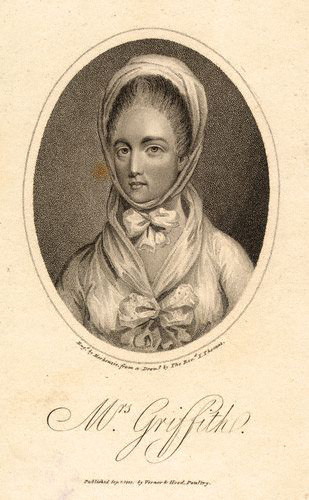
Elizabeth Griffith was an 18th-century Welsh-born dramatist, fiction writer, essayist and actress, who lived and worked in Ireland.
Cecilia Young was one of the greatest English sopranos of the eighteenth century, the wife of composer Thomas Arne, and the mother of composer Michael Arne. According to the music historian Charles Burney, she had "a good natural voice and a fine shake [and] had been so well taught, that her style of singing was infinitely superior to that of any other English woman of her time". She was part of a well-known English family of musicians that included several professional singers and organists. Young enjoyed a large amount of success through her close association with George Frideric Handel. She appeared in several of his oratorios and operas including the premieres of Ariodante (1735), Alcina (1735), Alexander's Feast (1736) and Saul (1739).
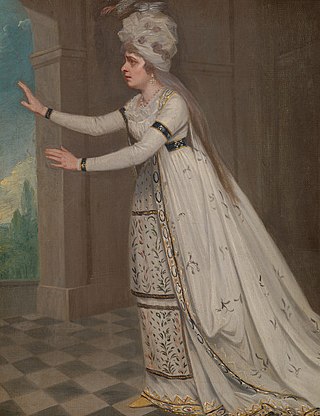
Ann Brunton Merry was an English actress popular in the Kingdom of Great Britain and later in the United States of America.
Richard Daly (1758–1813) was an Irish actor and theatrical manager who, between 1786 and 1797, held the Royal patent for staging dramatic productions in Dublin and became such a dominant figure in Irish theatre that he was referred to as "King Daly".

Elizabeth Hartley (1750?–1824) was one of the most celebrated actresses on the London stage in the 18th century. She was also notorious for the role she played in society scandals including "The Vauxhall Affray".

Mrs Charlotte Melmoth was an 18th-century English actress, the estranged spouse of British actor/writer Samuel Jackson Pratt, and known as "The Grande Dame of Tragedy on the Early American Stage". After a moderately successful stage career in Great Britain and Ireland, she emigrated to the United States of America in 1793 and became one of the best-known actresses of the late 18th/early 19th century.

Sarah West was a British actress.
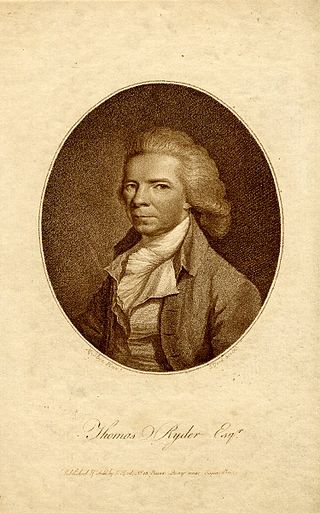
Thomas Ryder (1735–1790) was a British actor and theatre manager, associated with the Smock Alley Theatre in Dublin. As a player, he was considered at his best in low comedy.
Esther Brand was a British actress. She was a dramatic actress, but had a very good sense of humour. She was disliked by George Anne Bellamy, who nicknamed her "Tripe". She relied on charity towards the end of her life and was the reason for the founding of the Drury Lane Theatrical Fund. Brand would marry three times and would die destitute in London.
Elizabeth Vincent was a British stage actress of the eighteenth century. She was the wife of the instrumentalist and composer, Richard Vincent.
Jane Rogers was a British stage actress.
Anna Marcella Giffard (1707–1777) was an Irish stage actress.
James Rosco was a British stage actor. His name is also written as James Roscoe.
Laurence Clinch was an Irish actor, familiarly known as Larry, and accomplished in both tragedy and comedy. The popular farce St Patrick's Day was written and performed to showcase his particular talent.
References
- ↑ Cave, Richard Allen. "Fitzhenry, Elizabeth". Oxford Dictionary of National Biography (online ed.). Oxford University Press. doi:10.1093/ref:odnb/9600.(Subscription or UK public library membership required.)
![]() This article incorporates text from a publication now in the public domain : "Fitzhenry, Mrs.". Dictionary of National Biography . London: Smith, Elder & Co. 1885–1900.
This article incorporates text from a publication now in the public domain : "Fitzhenry, Mrs.". Dictionary of National Biography . London: Smith, Elder & Co. 1885–1900.